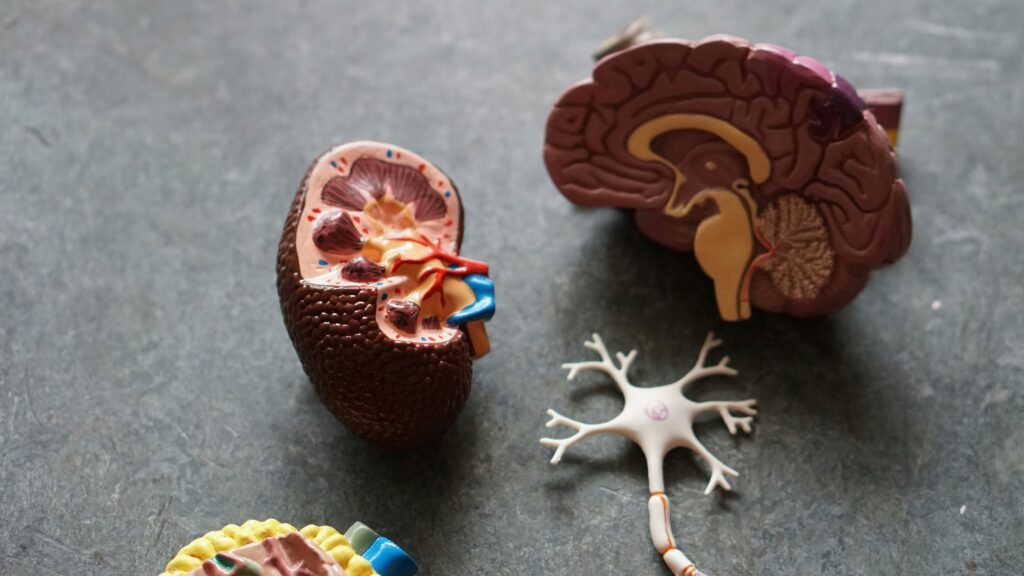
Can Overusing Antibiotics Harm Your Mental Health? A Pharmacist’s Insight
Understanding the Link Between Antibiotics and Mental Health
Nowadays, people in our society take antibiotics like candy, but as candy rots our teeth, antibiotics will rot our brains. How so? You ask? As a pharmacist, I’ve often seen people overlook the hidden costs of frequent antibiotic use. Antibiotic prescriptions are at an all-time high in 2025, while anxiety and depression rates keep soaring. Today, let’s explore the growing connection between antibiotics and mental health.

How Antibiotics and Mental Health Are Connected Through the Gut
The gut-brain axis is a two-way highway where your microbiome helps produce mood-regulating chemicals like serotonin and GABA. Gut health plays a major role in mental health, and antibiotics can disrupt this balance by wiping out friendly bacteria and tipping neurotransmitters off-kilter.
I’m a pretty OCD guy myself, and as much as we like to keep ourselves clean, our gut contains trillions of bacteria (The good kind) – These are the bacteria that help our body in a symbiotic relationship. The good bacteria help produce key neurotransmitters such as serotonin and dopamine, often termed as the ‘feel-good’ chemicals. Let’s connect the dots here. When you take a broad-spectrum antibiotic then you’re not only wiping out the bad bacteria, but you also kill the good ones.
The result? A disrupted gut-brain axis – The communication line between your digestive tracts and your brain. This disruption increases the likelihood of mood disorders, altered stress response, and can even cause cognitive disabilities.

What does Research Say?
A 2022 Comprehensive Meta-Analysis published in the Journal of Internal Medicine found that a broad-spectrum antibiotic course can alter gut bacteria diversity for several weeks post-therapy. Furthermore, they also found that gut peptides, such as leptin and ghrelin levels, were altered post-antibiotic therapy, which may result in increased risk of depression and anxiety. (Dinan & Dinan, 2022)
A 2021 Community-Based Cross-Sectional study found that broad-spectrum antibiotics such as ciprofloxacin and other fluoroquinolones may be associated with child mental health disorders. (Zhang et al., 2021)
A 2022 Retrospective Cohort Study spanning 5 years of data from January 2013 to December 2018, published in the Journal of Brain, Behaviour & Immunity – Health, found that patients who have been treated with broad-spectrum antibiotics have an increased risk of anxiety and depression, particularly in men. (Prichett et al., 2022)
While these studies do not prove clear-cut causation, the evidence is strong enough to raise eyebrows in the medical community. The link between antibiotics and mental health is being explored more seriously in both psychiatry and pharmacy research.
What You Can Do?
The good news is that most mental health effects due to excess antibiotic use are reversible with proper care. Here is how you can protect your gut and your mind:

- Never use antibiotics for minor ailments such as Common Colds and Viral Infections. Antibiotics are useless against viral infections.
- Incorporate prebiotics, probiotics, or fermented foods (after your course finishes). You can also try probiotics-rich foods such as yogurt, kefir, and kombucha.
- Always consult your doctor or pharmacist about the shortest effective course
- Pay attention to mood or energy changes after antibiotics. Relax, it’s only temporary. You’ll be better in no time.
Email us or contact us for brand recommendations.
On a Final Note
In a world where we pop antibiotics like candy at the first sign of illness, it’s vital to pause and think. Our gut is more than a digestive organ – it’s a mental health ally. So, next time you have the urge to self-medicate with antibiotics, consider going to a doctor or consulting a clinical pharmacist. Remember: protecting your microbiome is protecting your mind.
Sources
- Dinan K, Dinan T. Antibiotics and mental health: The good, the bad and the ugly. Journal of Internal Medicine. 2022 Dec;292(6):858-69.
- Zhang J, Liu K, Sun L, Yang L, Liu X, Zhu Y, Wei R, Jin Z, Wang L, Ma Y, Wang S. Exposure to antibiotics and mental disorders in children: a community-based cross-sectional study. Environmental Geochemistry and Health. 2021 Aug;43:3237-53.
- Prichett LM, Yolken RH, Wu L, Severance EG, Kumra T. Relationship between antibiotic exposure and subsequent mental health disorders in a primary care health system. Brain, behavior, & immunity-health. 2022 May 1;21:100430.
- Cleveland Clinic. Viral Infection. Accessed: 28 June 2025.
- Healthline. Probiotics and Prebiotics. Accessed: 28 June 2025.
Dr. Hasnain Siraj Memon is a Doctor of Pharmacy (Pharm D), medical content creator, and the founder of DrRxWrites. With a strong foundation in clinical pharmacy and a creative eye for storytelling, he transforms complex medical and wellness topics into accessible, evidence-based content for both professionals and the general public.
His writing is guided by a passion for accuracy, empathy, and public education helping readers make informed decisions about their health, habits, and healing. Whether he’s explaining pharmacology or sharing life lessons from the hospital ward, Hasnain brings clarity and heart to every piece.
He’s currently building a library of wellness content while offering freelance writing services in medical blogging, drug reviews, SEO optimization, and patient education materials.




excellent issues altogether, you just won a new reader. What might you suggest about your submit that you simply made some days ago? Any certain?
I’m certain.